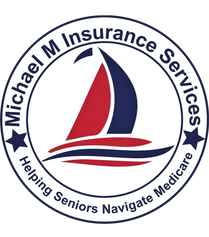Uncovering the Gaps: What Doesn’t Medicare Cover?
As we age or face Medicare cover disabilities, healthcare becomes an increasingly critical aspect of our lives. Medicare provides invaluable support to seniors and individuals under 65 with certain disabilities. However, while it covers a wide range of health services and supplies, it’s not an all-encompassing program. Understanding what does not cover can help you plan better for your healthcare needs and avoid unexpected expenses.
Common Services and Supplies Not Covered by Medicare
Long-Term Care
One of the most significant exclusions in Medicare coverage is long-term care, also called custodial care. Medicare will not cover these services if you need assistance with daily activities like dressing, bathing, or using the restroom over an extended period. These are typically required by those with chronic illnesses, dementia, or disabilities who require ongoing personal care. Medicare will provide skilled nursing services following an Admitted Hospital stay.
Most Dental Care
General dental services, including cleanings, fillings, tooth extractions, dentures, and most dental plates, are not covered by Medicare. Without additional insurance or alternative programs, dental procedures can become out-of-pocket expenses.
Eye Examinations for Prescription Glasses
Routine eye exams for prescription glasses are another area where Medicare coverage does not apply. Similarly, costs for contact lenses and eyeglasses are generally not included, with some exceptions for post-cataract surgery if glasses are required.
Cosmetic Surgery
Suppose you’re considering any cosmetic surgery to improve your appearance. In that case, it’s important to know that these procedures are not covered unless they are medically necessary, such as when an injury has occurred or to improve the function of a malformed body part.
Hearing Aids and Related Fittings
Hearing impairment can be a significant challenge, but Medicare coverage does not extend to hearing aids or the exams for fitting them. This exclusion affects many seniors who require these devices for improved quality of life.
Routine Foot Care Medicare cover
While certain foot-related conditions may receive coverage, routine foot care, including the cutting of corns and calluses or toenail trimming, is generally not covered. This exclusion can be particularly relevant for individuals with diabetes or vascular disease, who often require regular foot care.
Additional Items and Services Excluded from Medicare
- Alternative medicine, such as acupuncture, except for a few specific conditions.
- Most chiropractic services, except for manual manipulation of the spine to correct a subluxation.
- Health care while travelling outside the United States, barring a few exceptions.
- Private-duty nursing.
- Personal comfort items, such as a hospital phone or television.
- Elective surgeries which are not deemed medically necessary.
Closing the Gaps in Coverage
To fill these coverage gaps, many turn to Medicare Advantage Plans (Part C), Medicare Supplement(Medigap) Plans or other insurance providers that offer supplementary options, such as dental and vision benefits. There are also separate Medicare Part D plans for prescription drugs that are not covered by the original Medicare.
It’s crucial to explore these options and understand the costs involved and the terms of coverage. Additionally, some state Medicaid programs might offer assistance for services not covered by Medicare, particularly for those with limited income and resources.
Conclusion
Navigating healthcare needs can be complex, but understanding Medicare’s limitations empowers you to seek out the necessary additional coverage. Invest time in reviewing the specifics of your Medicare plan and consider supplementary insurance to ensure that your health needs will be fully met. Planning ahead for these uncovered services can help maintain your health and financial well-being in the long term.
Mike Miligi- Owner

